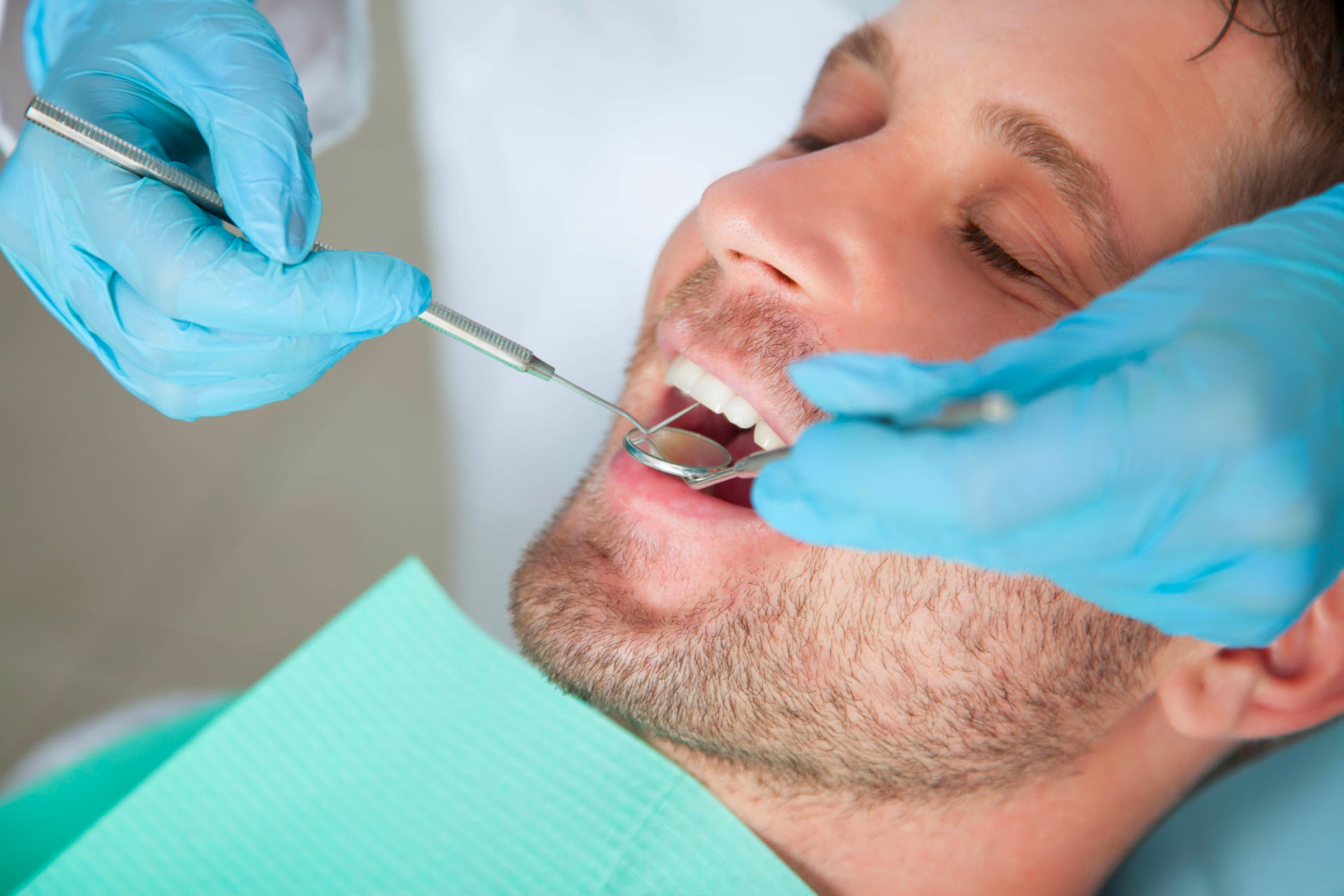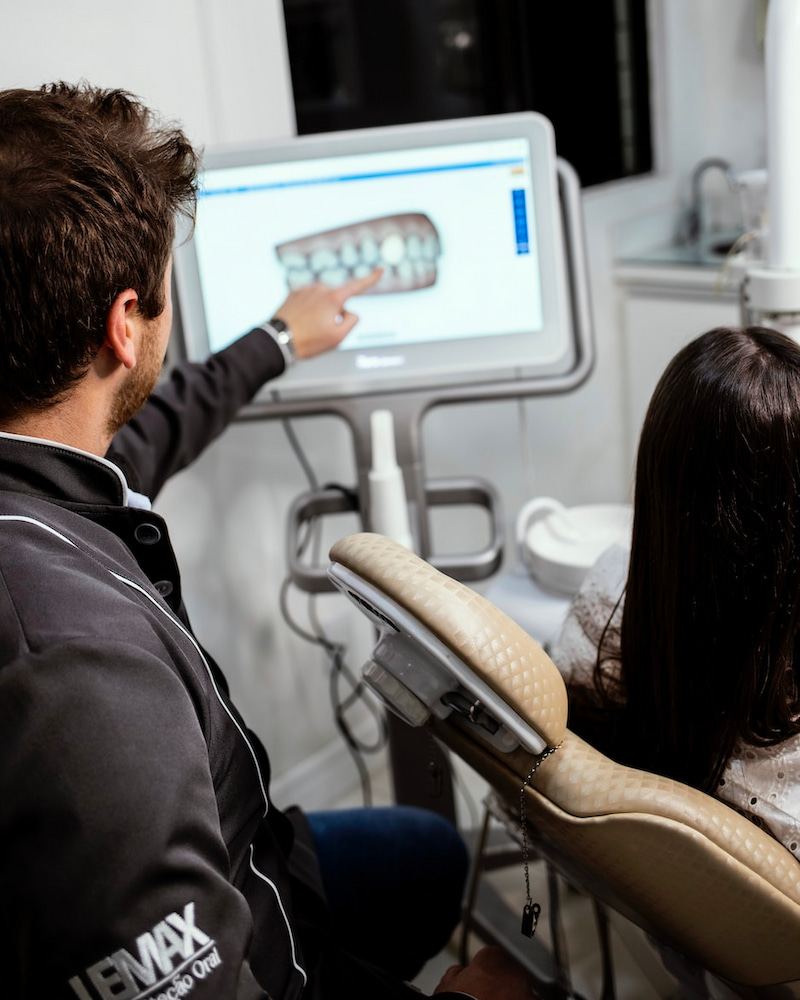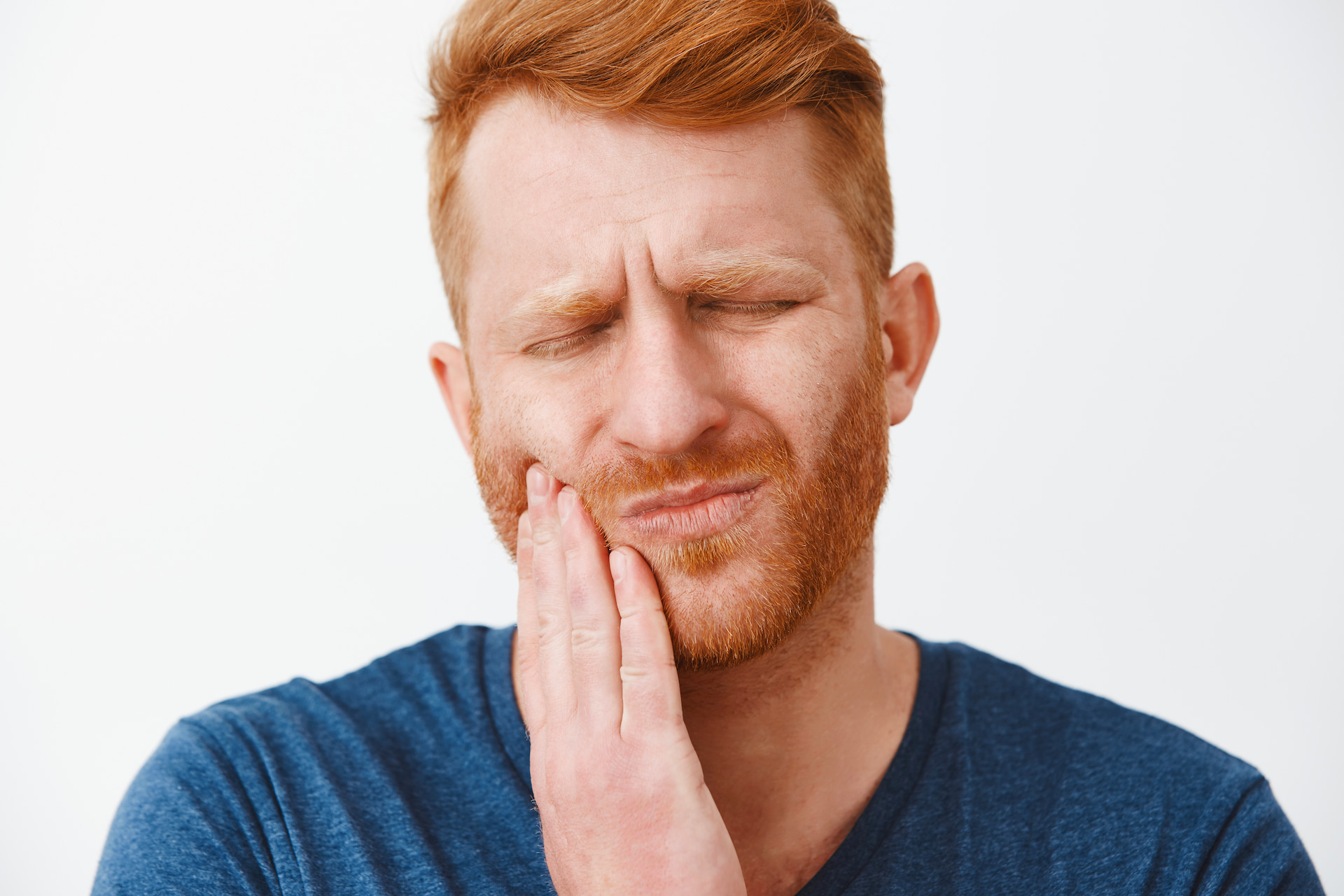Periodontitis
Periodontitis, or Periodontal Disease, is the name given to the later four stages of gum disease. In addition to some of the other symptoms of Gingivitis, such as redness or inflammation, symptoms are:
- Severely receding gums
- Deep pockets between teeth
- Tissue or bone damage
In severe cases of Periodontal disease, more invasive treatment, such as surgery may be necessary. However, our gum disease dentists will always try less invasive treatments first to treat periodontitis and restore your overall oral health. If left untreated, chronic periodontitis can affect adjacent bones, cause poor overall health and can lead to the development of Osteoporosis.
Concerned with the condition of your gums? Book an appointment at our gum disease clinic and get a consultation for possible treatment.
Your dentist will assess your gums and teeth, and create a personalised strategy for treatment.
The Process: Non-Surgical Gum Disease Treatment
Consultation
Your gum disease treatment in Sydney always starts with a physical examination and diagnosis of your gum health. This is the ideal opportunity to bring up any concerns that you have with our gum disease dentist. Our dentists also use the latest video and imaging technology to get an up-close look at your teeth and gums. If necessary, we may also take an x-ray to detect any early bone loss, deep gum pockets or changes in tooth positioning.
Deep Cleaning, Scaling & Root Planing
The next step is a deep cleaning of your teeth and gums. Our dentists use an ultrasonic scaler to remove calculus (also called tartar or hardened plaque) from your teeth. Using a scaler, they also remove calculus below the gum line (where it has the highest chance of leading to gum disease) and then smooth out the gums to better heal and attach back to the teeth.
Antibiotics
Depending on the state of your teeth and gums, you may also be prescribed antibiotics to help control symptoms of the disease and keep your gums clean. This can be small chips to be placed in pockets in the gum to kill bacteria and shrink the size of the pocket over time, a gel to spread onto gum pockets or an enzyme suppressant to block enzymes in your mouth from damaging soft gum tissue.
Ongoing Proper Oral Hygiene
Good oral hygiene and dental cleaning technique are essential to prevent accumulating tartar, so gingivitis doesn’t come back. Therefore at the end of your treatment, your dentist will provide clear and thorough guidance for good brushing techniques and can help advise you on the types of dental hygiene products you need to look for to keep oral bacteria to bay. If any follow-up deep cleanings are needed for your gum disease treatment, we will advise on this. However, we recommend that all our patients have at least a dental check up and clean every 6 months.
Surgical Periodontitis Treatment
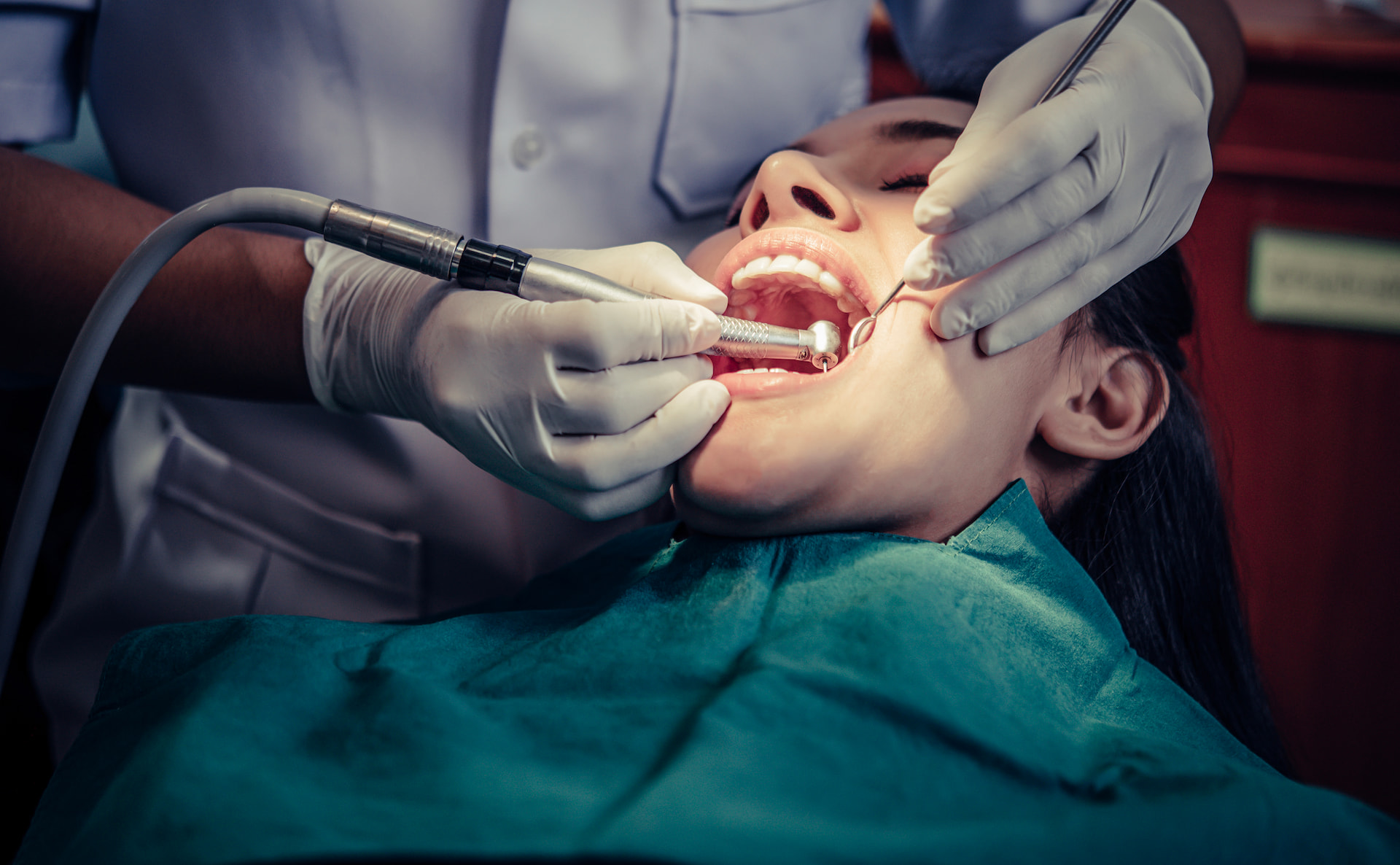
Flap Surgery
Also called pocket reduction surgery, this treatment is a surgical procedure used to create a better environment for managing your oral and gum health. A dental surgeon makes small cuts into the gums and lifts up a section of tissue back to reduce the pockets around the gums.

Soft Tissue Grafts
In this gum disease treatment, a dental surgeon grafts soft tissue to the affected area suffering from soft tissue loss.
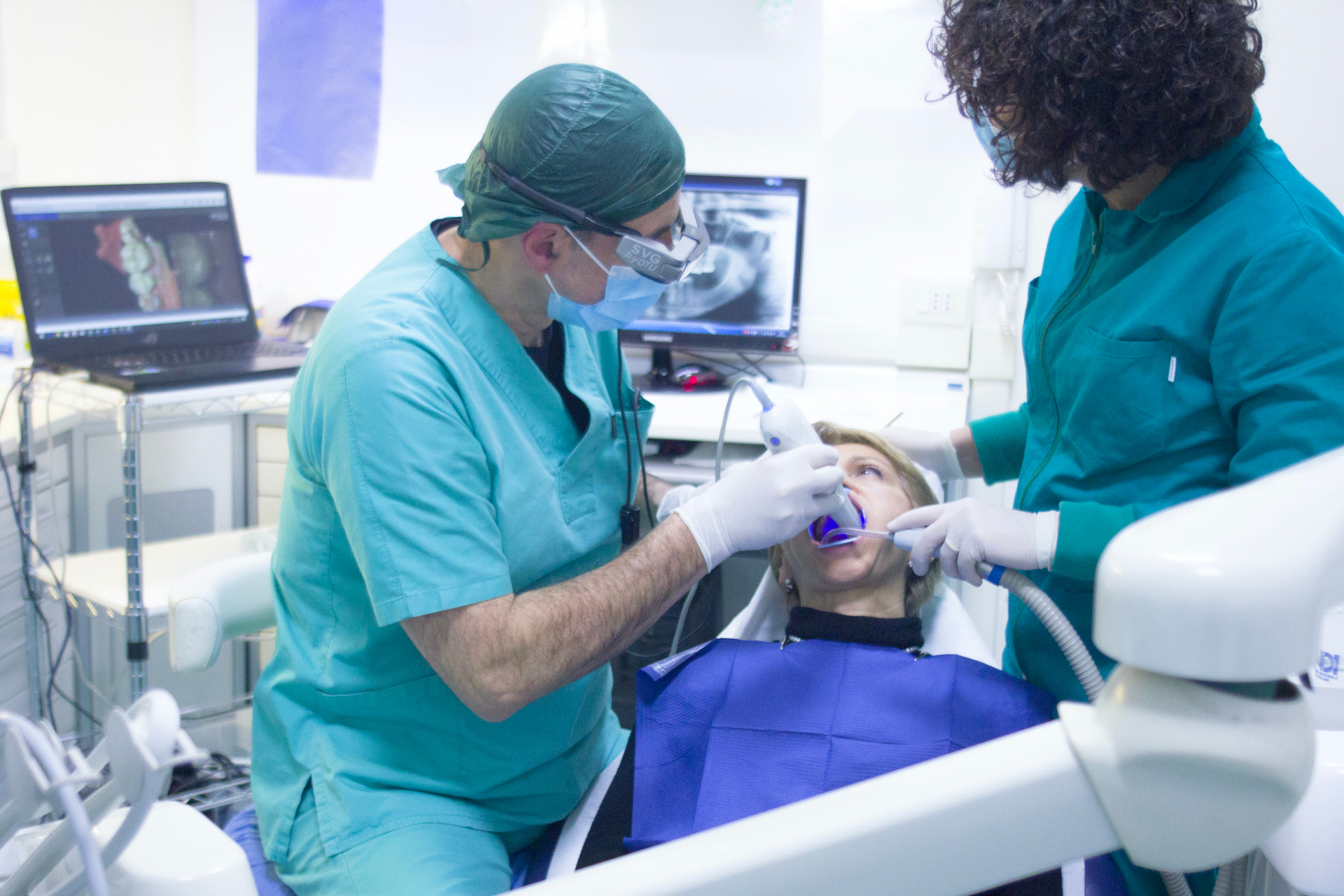
Bone Grafting
A dental surgeon takes bone grafts from donated bone, synthetic bone or your own bone to replace bone loss from gum disease.
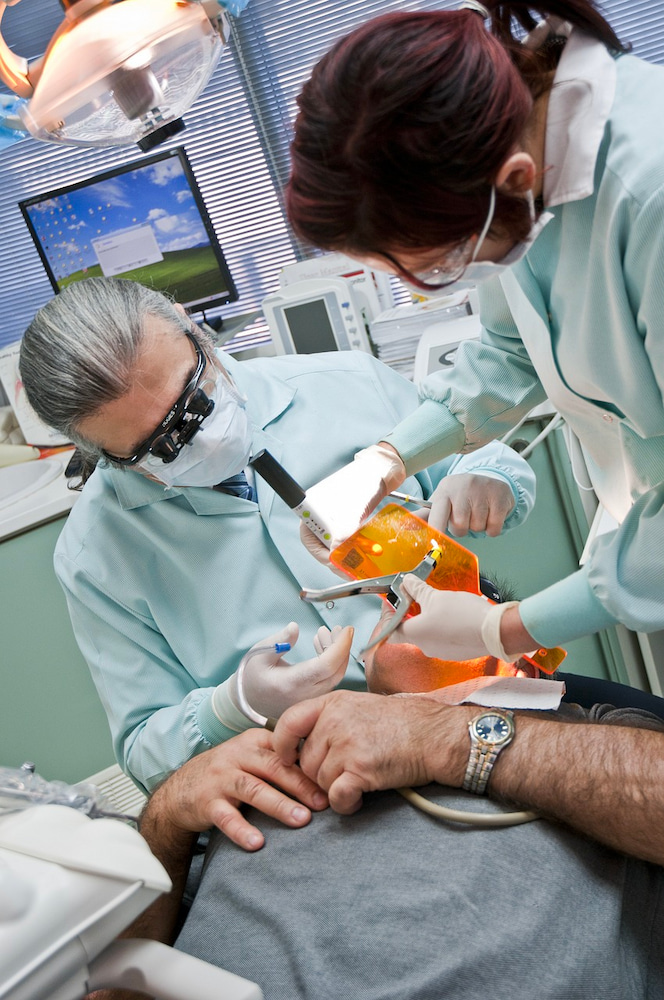
Guided Tissue Regeneration
This procedure is done alongside other surgical periodontitis treatments to promote bone and tissue growth and guide how both grow in. Your gum disease dentist places a small piece of mesh fabric between the bone and gum tissue, which will help prevent soft gum tissue from growing where there was previously bone.
Find out more about our sedation options.
We’re dedicated to making dental treatment accessible at the TLC Dentist.
The TLC Dentist Clinic offers interest-free payment plans for all our patients.
Aftercare and Maintenance
Follow postoperative instructions
Be sure to take any prescribed medications as directed and attend any scheduled follow-up appointments. By adhering to instructions provided by your dentist or periodontist, you can promote proper healing and minimise the risk of complications.
Practice good oral hygiene
Maintaining excellent oral hygiene is essential for successful recovery after gum disease treatment surgery. Generally, this may include gently brushing your teeth with a soft-bristled toothbrush and using an antimicrobial mouthwash as advised.
Adopt a healthy lifestyle
Avoid smoking or using tobacco products as they can impede healing and increase the risk of complications. Additionally, strive to maintain a balanced diet rich in vitamins and minerals, which can promote tissue healing. Drinking plenty of water and avoiding sticky or hard foods can also help prevent any unnecessary discomfort or damage to the surgical sites.
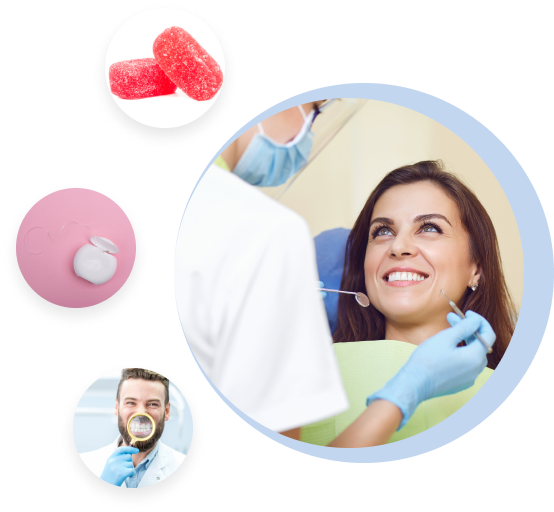
Follow The TLC Dentist On Instagram
Error: No feed with the ID 1 found.
Please go to the Instagram Feed settings page to create a feed.
